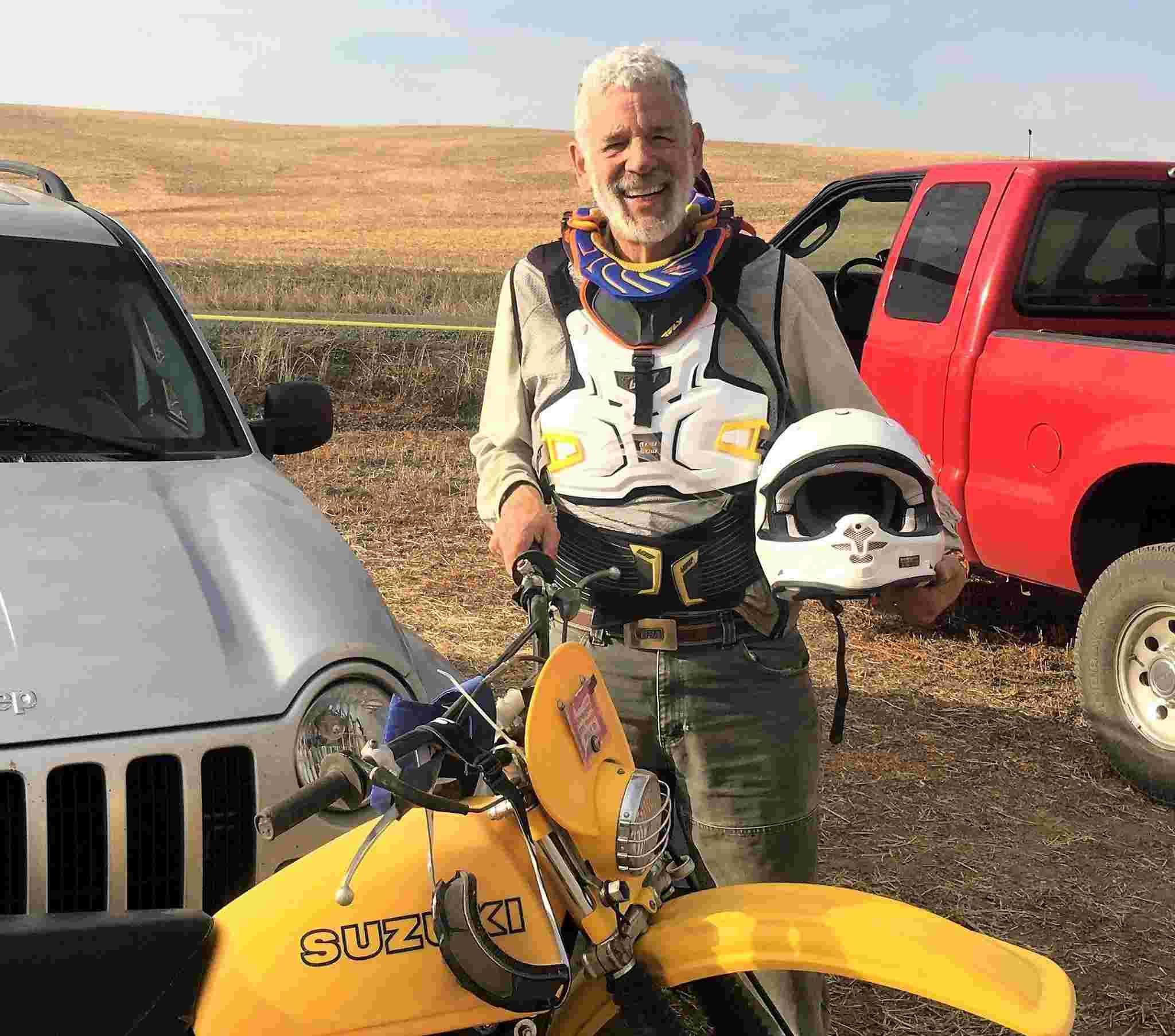Dexter Chapin is a teacher, biologist, author, motorcycle builder and rider, mentor, and regular blogger at Substack, where you can subscribe to his blog.
Who are you?
When asked who I am, and how I got here, I am never sure how to answer. Do I start with a New England childhood surrounded by an extended, multigenerational, loving, generous, progressive family?
Or do I start with an all-boys boarding school in the 6th grade?
No, better not start there, except to say after that, I visited, but never lived at home. In high school, I spent summers hunting sharks in the Delaware Bay, or touring Europe on scooters. I got into college not as a great kid or student. I got in because my biology teacher drove me to the local slaughter house so I could learn how to keep cow livers alive outside of cows.
My father was old fashioned, cool, distant, and supportive but did not leave much impression.
My mother was ahead of her time, independent, and fierce. She did not graduate high school but built two houses and was head librarian for the National Academy of Sciences. She was always in my corner.
Or do I start when I arrived home for breakfast to announce I’d flunked out of college for the first time. Mom just said I had to get a job and be out of the house by Labor Day.
I left for New Caledonia to bring back dugongs for the National Zoo. I got as far as Honolulu before the French decided to revoke my visa. I went around the island and started working with dolphins. I spent time with Keiki, a Tursiops, and Pono, a Steno, but the life changing experience was trying to assist Gregory Bateson studying dolphin communications. I had no idea who he was. He was just kind and patient, with a kid who knew nothing, and didn’t know it. The things he showed and taught me shape who I am today. He did it all without my knowing it.
So, I left.
I went to work as a deck hand on the RV Teritu. That was a whole different world. Most of the crew were Pacific veterans. They always wore shirts in port, but at sea, the shirts came off. You cannot imagine how many bullet holes were visible. Those wounds pretty much told you exactly who they were. They’d get shot and then go back again, and again.
They were kind, patient, and protective of a kid who knew nothing, and didn’t know it. They made me expert with LORAN and taught me how to survive a bar-fight. I went back to school, changed majors a couple of times, and left again.
I was ineligible for the draft, so I could walk down the street, if I saw something interesting, turn in the door, and have a job. I always told them I would learn and work as fast as I could but would leave when I would.
I learned to read USGS gravitational surveys, rode for a motorcycle shop, assisted in a precision machine shop, and refinished bowling lanes flat to a thousandth.I went back, graduated as an Anthropologist/Biologist, and left for Africa on Pan Am #1.
I got off at Entebbe and hitched rides around Uganda, Kenya, and Tanzania. I climbed mountains, learned to stand still when charged by a rhino, was a singularity, and was surrounded by kind, patient, and protective people with a kid who knew nothing and didn’t know it.
I needed a job, so I went to the university placement service. They found two possibles. One was teaching, so I became a teacher, for more than 50 years on both coasts, in Africa, and the Caribbean. Teaching allowed me to spend time in the throne village of one of the last great tribal chiefs, travel from the USSR to the USSR around the Caspian Sea, spend time on the marge of Lake LaBerge, and, most important, just spend time learning a whole lot.
The highlights of my life to date include: being married for over fifty years to the same extraordinary woman who has stuck by me through here and there, and better or worse, having met people who are treasured as friends, some going back over sixty years, being able to surround myself with people smarter than I am, having made a real difference in a few people’s lives, and having left a few places better than I found them.
